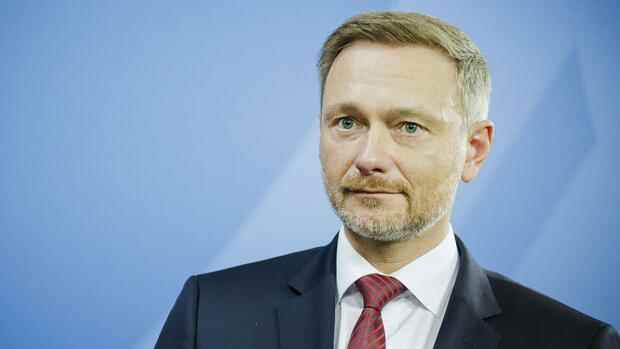Washington Federal Finance Minister Christian Lindner (FDP) has warned of the dramatic effects on the global economy as a result of the war in Ukraine. “The risk of a global debt crisis cannot be ruled out,” said Lindner. The finance minister, who is attending the spring conference of the International Monetary Fund (IMF) in Washington, warned that action must now be taken. “It must be acted now.”
The IMF has significantly lowered its forecast for global economic growth to 3.6 percent. At the same time, the IMF expects higher and longer-lasting inflation.
Highly indebted developing and emerging countries are particularly hard hit by rising interest rates. In a report, the IMF warned of rising public debt worldwide. It is likely to be around 94 percent of economic output this year and next.
Top jobs of the day
Find the best jobs now and
be notified by email.
The fear in the talks at the IMF conference is that developing and emerging countries in particular could collapse under the burden of debt. This must be prevented before a global debt crisis occurs.
Germany also wants to provide financial support for this, as Lindner announced in Washington. He wants to provide loans of 6.3 billion euros for an IMF trust fund.
The so-called Resilience and Sustainability Trust (RST) aims to help developing and emerging countries to cope with challenges such as climate change and pandemics. Lindner also announced that it would also support a fund that would be used to subsidize the interest payments of poorer countries. Germany will make 100 million euros available for this, said the Federal Minister of Finance.
At the same time, the IMF is negotiating a new framework for possible government debt restructuring. However, this turns out to be difficult. “It will only work with China,” emphasized Lindner. The People’s Republic is now one of the largest creditors of developing and emerging countries.
However, little is known about the details of outstanding loans, which is why “transparency” is being urged at the IMF. “China bears a special responsibility,” said the Federal Minister of Finance.
“We will not offer Russia a stage to spread propaganda”
The debts of many countries had risen extremely due to spending to deal with the corona pandemic. The economic recovery, which the IMF had expected before the start of the Ukraine war, should actually ensure a reduction. “If there is no recovery now, it will have an enormous impact,” said Lindner.
He blamed Russian President Vladimir Putin for this. “Responsibility for the current macroeconomic risks lies solely with Russia,” not the sanctions imposed by the West.
>> also read: Debate about tax increases: is the solo making a comeback because of the Ukraine war?
This emphasis and support for developing and emerging countries is also an attempt to get as many states as possible behind the West’s actions against Russia. There is certainly concern that the dramatic effects, such as rising food prices, could increase criticism not only of Russia but also of the West.
The Europeans, the US and their allies try to isolate Moscow at the IMF meeting. Until recently, it was unclear who would take part in the meeting of the IMF and the parallel meeting of the most important industrialized and emerging countries (G20) for Russia. “We will not offer Russia a stage to spread propaganda and lies,” said Lindner.
The IMF is negotiating a new framework for possible government debt restructuring. However, this turns out to be difficult.
(Photo: Bloomberg)
The economic effects of the Ukraine war are also evident in Germany. The IMF has corrected its growth forecast for this year by 1.7 percentage points to 2.1 percent. At the same time, inflation is also increasing significantly in Germany, mainly due to rising energy prices. He expects an “inflation rate of around six percent” for the current year, said Bundesbank President Joachim Nagel in Washington.
From Nagel’s point of view, the high inflation in Germany and the euro zone means that the European Central Bank (ECB) will soon have to raise interest rates. At the beginning of the third quarter – i.e. in July – the first increase is to be expected. The ECB’s bond purchases will then probably be complete.
In any case, the problem of low inflation rates, for which the bond purchases were intended, would have been solved. A return to the ECB’s target of two percent inflation is becoming increasingly unlikely. At the same time, Nagel also warned against an “emergency monetary policy brake”.
More: “Like waves of an earthquake” – IMF lowers growth forecast significantly
